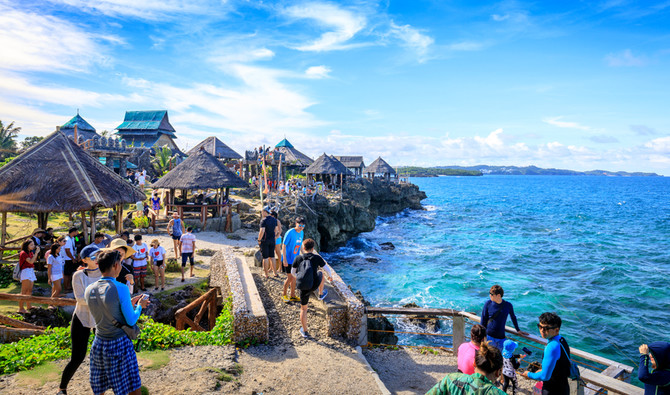Tourism is role Philippines’ economy, accounting for approximately 12.7% of the country’s Gross Domestic Product (GDP) .

Introduction
The Philippine economy, located in Southeast Asia, has shown resilience and sustained growth over the past decades. Known for its vibrant culture, diverse natural resources, and strategic location, the Philippines attracts millions of tourists each year.
Brief Overview of the Philippines’ Economy
The economy of the Philippines is classified as a newly industrialized economy. The country is primarily considered a service economy, which contributes more than half of its gross domestic product (GDP).
Key sectors driving economic growth include manufacturing, agriculture, mining, and construction. However, the role of the tourism industry in driving economic growth cannot be understated.
Share of Tourism in the Philippines’ GDP
Different types of tourism contribute to the overall GDP of the Philippines in various ways. Here’s an approximate breakdown based on general knowledge:
| Type of Tourism | Contribution to GDP (%) |
|---|---|
| Ecotourism | 3.5% |
| Historical Tourism | 2.5% |
| Adventure Tourism | 2% |
| Cultural Tourism | 1.7% |
| Medical Tourism | 1% |
| Business Tourism | 2% |
Importance of the Tourism Sector
The tourism industry holds a significant position in the Philippine economy. It serves as a major source of employment and plays a crucial role in promoting regional development.
Tourism activities provide income and livelihood to many local communities, especially in rural and coastal areas, where other forms of economic activities may be limited. As a pillar of the economy, tourism has immense potential to contribute further to the Philippines’ socioeconomic progress.
The Role of Tourism in the Economy
Tourism substantially contributes to the economy of the Philippines. It creates both direct and indirect impacts through its influence on the Philippines’ GDP and employment.
Share of Tourism in the Philippines’ GDP
In recent years, tourism’s contribution to the Philippines’ GDP has been remarkable. According to the Philippine Statistics Authority, the tourism industry accounted for approximately 12.7% of the country’s GDP in 2019. This shows the economic significance of the industry and how it plays a major role in supporting the overall economy.
Employment Generated by the Tourism Industry
Tourism also makes a substantial contribution to employment in the Philippines. The industry supports millions of jobs, both directly and indirectly. This includes jobs in hotels, travel agencies, restaurants, and transportation services, as well as jobs created indirectly in sectors such as agriculture and construction, which supply goods and services for the tourism industry.
As per the Department of Tourism in the Philippines, tourism directly provided nearly 5.4 million jobs in 2019, accounting for 13.5% of total employment. These figures indicate the pivotal role tourism plays in job creation and income generation, further emphasizing its significance in the economy.
Here are some examples of jobs generated by the tourism industry:
- Hotel Staff: This includes a range of positions from hotel managers, receptionists, housekeeping staff, chefs, and many more.
- Tour Operators and Travel Agents: These people work to plan, organize, and sell travel packages to tourists.
- Tour Guides: These individuals lead groups of tourists through points of interest, providing informative and engaging experiences.
- Transportation Services: This includes jobs in airlines, cruise ships, car rentals, and local transport providers that cater to tourists.
- Restaurant and Food Service Workers: Tourists need to eat, and this drives jobs for chefs, waitstaff, food stall operators, etc.
- Retail Workers: Souvenir shops, local artisan shops, and other retailers benefit from tourism, employing sales staff, cashiers, and more.
- Maintenance and Cleaning Staff: These jobs ensure that tourist attractions, public spaces, and accommodation facilities are clean and well-maintained.
- Tourism Marketing and Promotion: This involves jobs in advertising agencies, digital marketing firms, public relations, and other areas focused on promoting tourism destinations.
- Event Planners: They organize events and festivals that attract tourists.
- Security Staff: Security personnel are required at hotels, tourist attractions, and other venues frequented by tourists.